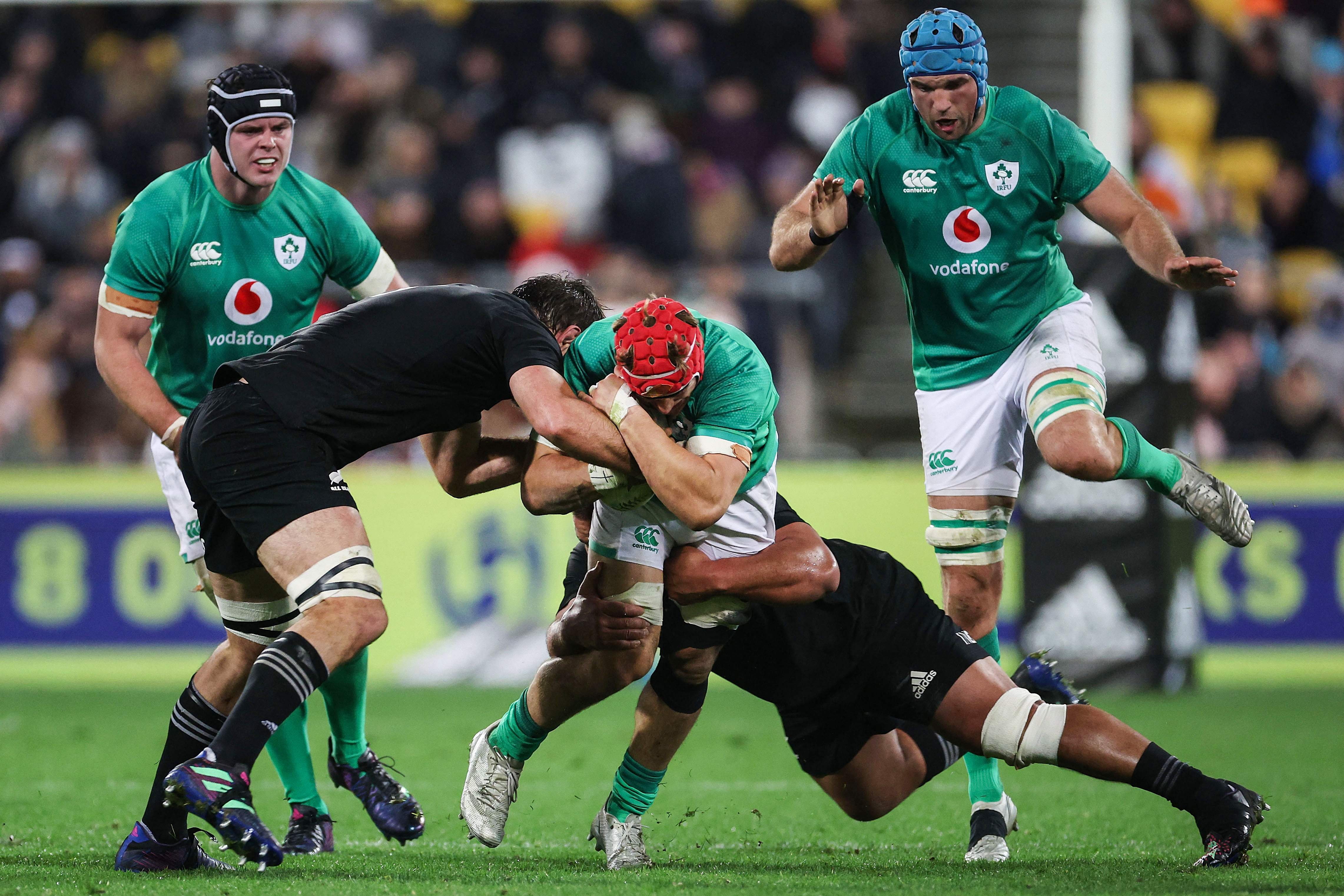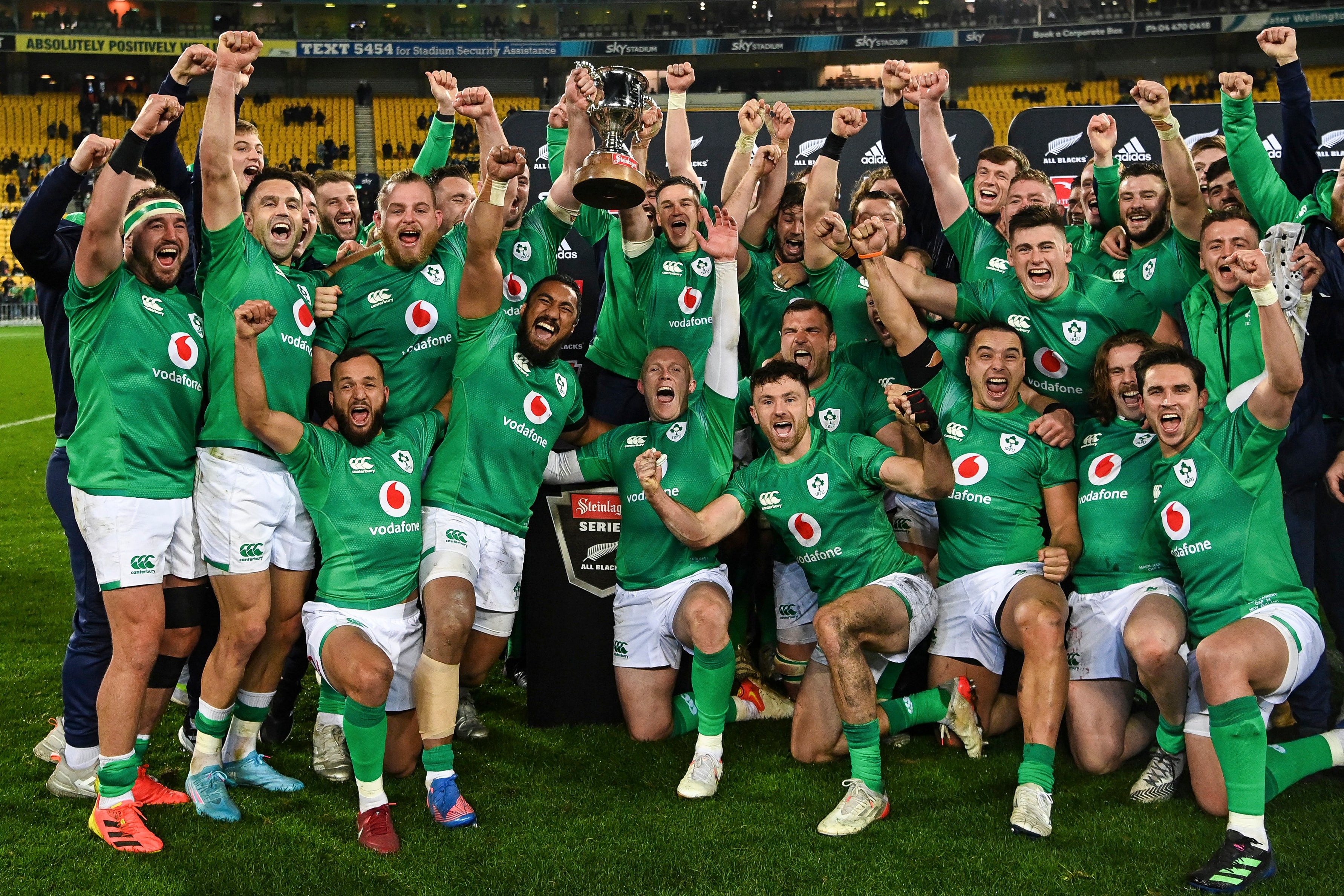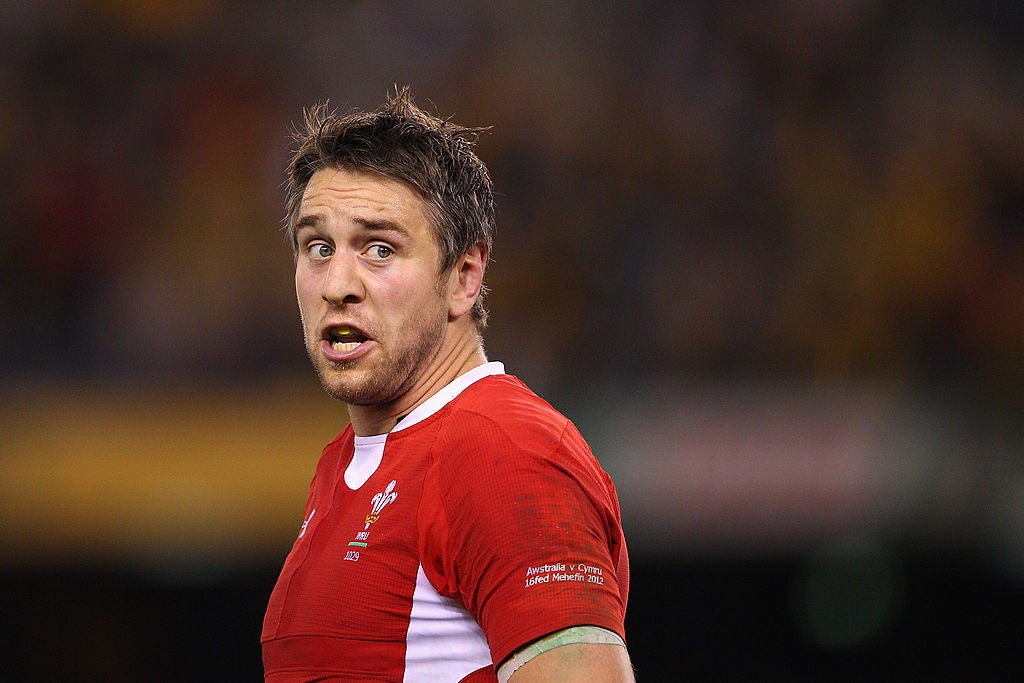Thrilling rugby summer teases 2023 World Cup but dementia crisis casts long shadow
The news of Ryan Jones’s diagnosis paints a bleak long-term picture amid the excitement of the recent southern hemisphere series

Did absence make the heart grow fonder, or did the delay deliver a vintage summer of rugby? We had to wait for Scotland, Ireland, England and Wales to embark on their only extended trips of this World Cup cycle, but this was a July that contained everything: history, mystery, drama and diversion.
It ended split almost impossibly evenly down the middle: two overall triumphs taken by sides from the north, two by those south of the equator, with the aggregate score across 12 encounters tilted in favour of the travelling sides by just a single conversion. The individual contests may not have always crackled but each series remained firmly in the balance deep into their deciders, and fears after the opening weekend that weary northern hemisphere legs may provide flat contests were unfounded.
Throw in Chile’s seismic two-legged victory over the USA to qualify for the World Cup for the first time, Georgia’s point-proving win against Italy last weekend, a mightily entertaining mini-series between France and Japan, and a hard-fought Pacific Nations Cup, and you cannot say that the rugby public hasn’t been royally entertained during this summer swing.
Attention now turns more squarely to next year’s World Cup. Certainly, France, Ireland and South Africa still look entirely clear in their identities and direction towards the tournament, with settled squads, established playing styles and developed depth. You would be foolish to rule out an All Blacks resurgence, too, whether under Ian Foster or another coach, though for the first time in more than a decade it feels like New Zealand have ground to make up.

The nature of a draw made curiously early based on the rankings in January 2020 means that two of the likely lead quartet will fall in the last eight. That means that the best of the rest will provide two semi-finalists – and this July has shown that the margins are mighty tight.
Wales travelled with limited hope to South Africa, still reeling from their Italian-inflicted nadir in Cardiff, but proved they can still mix it with the big boys, and will reflect that they had their chances to win the series.
The three Tests between England and Australia could also have fallen either way. The pair are clearly middling, flawed sides, but with cleaner bills of health there are pieces upon which to build. England are starting to blend old and new, and the psychological boost of holding off the Wallabies in both Brisbane and then Sydney will reinforce their vulnerable underbelly.
Argentina and Scotland probably sit another rung below in the World Cup pecking order, each able to captivate and frustrate, and often in equal measure. Further still down the ladder and there are those who can cause trouble come France next year. The gaps between the top 12 to 15 sides in the world have probably never been narrower.
But, for all the optimism about what the next 14 months may bring, a weekend of plenty also week brought yet more troubling news of another ex-player in their early forties facing a future clouded by degenerative brain disease.
“I feel like my world is falling apart,” the former Wales captain Ryan Jones said to The Sunday Times, revealing in sobering detail that he had been diagnosed with early onset dementia. “And I am really scared. Because I’ve got three children and three step-children and I want to be a fantastic dad.
“It terrifies me because I don’t know if, in two years’ time, we’re sat here and these episodes are a week long, two weeks long or permanent. That’s the bit I can’t shake off.
“Every episode I have also leaves a bit of a legacy. Everything we cancel, every relationship that I poison or don’t have time for anymore, just makes it a little bit tougher to cope. I don’t know how to slow that down, make it stop, what to do. I lived 15 years of my life like a superhero and I’m not. I don’t know what the future holds.”

It is impossible to shake the pervasive thought that players are involved in far too many games across an ever-lengthening season. The four Rugby Championship teams are back in international action on the first weekend of August, while the tourists will return to the British Isles to find their clubmates already back in preseason training. In the celebration of another outstanding performance from Freddie Stewart at the SCG, it should not be forgotten that the Leicester and England full-back had exceeded the agreed limit of “competitive minutes” in a season. He was involved regardless. Those in power preach that player welfare is at the heart of every decision made, and strides have clearly been made, but can it truly be said that those on the pitch are not still being failed?
It is not an easy situation to consider, but it must be. It was another card-laden three weeks, and social media awash with clips of further contacts to the head that went unnoticed. Will these always be inevitable in a game played at higher and higher speeds by large individuals? Or can rugby be made demonstrably safer, potentially by making material changes to the sport? Jones offered a stark warning, suggesting that the sport is “walking headlong with its eyes closed into a catastrophic situation”. After a summer that offered so much, the immediate future excites, but rugby’s long-term picture is rather murkier.
Join our commenting forum
Join thought-provoking conversations, follow other Independent readers and see their replies
Comments
Bookmark popover
Removed from bookmarks